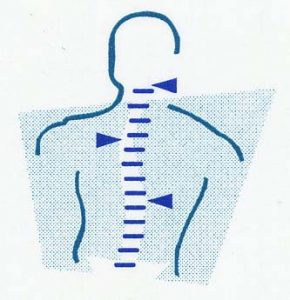 By: Susan St. John
By: Susan St. John
As many chiropractors are likely aware, they cannot “opt-out” of Medicare. Even if a chiropractor has not enrolled to be a Medicare provider, a Medicare beneficiary may require the chiropractor to submit a claim to or bill the Medicare program on his/her behalf for chiropractic services rendered. For chiropractic services to be covered by Medicare, the patient must have a condition necessitating treatment and manipulative services rendered must have a direct therapeutic relationship to the patient’s condition. The manipulative services must provide a reasonable expectation of recovery or improvement of function. Further, the Medicare patient’s condition must be acute and not a chronic subluxation without objective clinical improvement anticipated. Manipulative treatment beyond treating the acute phase, that is, a chronic condition, is considered maintenance therapy and is not covered. Thus, a chiropractor needs to carefully consider at what point a Medicare beneficiary’s treatment becomes palliative or maintenance therapy which would not be covered and thoroughly explain this to the patient. The chiropractor has a duty to let the patient know when treatment is no longer curative or therapeutic, but rather maintenance therapy.Continue reading
Medicare Opt Out: Part II
 By: Susan St. John
By: Susan St. John
As noted in Opting Out of Medicare Part I, opting out of Medicare may be an option for some physicians and practitioners. After determining whether you are eligible for opt-out or if it is financially feasible, there are a few other considerations. Part I discussed the Private Contract a physician must enter into with each Medicare beneficiary he or she treats; here, we will address the opt-out affidavit and other nuances of opting out. Let’s get started!
The Medicare Opt Out Affidavit
Provisions in an Opt Out Affidavit are similar to provisions that must be included in the opted out physician’s or practitioner’s private contract with Medicare beneficiaries. The opt-out affidavit must state that the physician or practitioner will only provide services to Medicare beneficiaries with whom they have a written and signed private contract and that the physician or practitioner will not submit claims to Medicare on behalf of Medicare beneficiaries. Medicare does allow for an exception here, but that is only when an opted out physician or practitioner treats a Medicare beneficiary who is not under private contract, and that beneficiary presents with a medical emergency or urgent care problem. Keep in mind, that if a Medicare beneficiary presents with a medical emergency or urgent care problem, the physician or practitioner cannot require that patient to sign a private contract at that time.Continue reading

